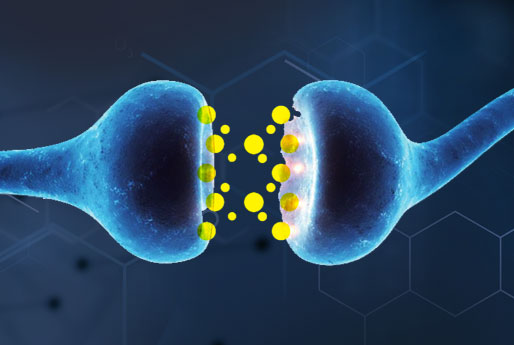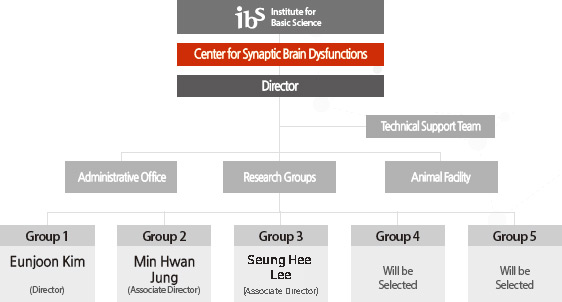주메뉴
- About IBS 연구원소개
-
Research Centers
연구단소개
- Research Outcomes
- Mathematics
- Physics
- Center for Underground Physics
- Center for Theoretical Physics of the Universe (Particle Theory and Cosmology Group)
- Center for Theoretical Physics of the Universe (Cosmology, Gravity and Astroparticle Physics Group)
- Dark Matter Axion Group
- Center for Artificial Low Dimensional Electronic Systems
- Center for Theoretical Physics of Complex Systems
- Center for Quantum Nanoscience
- Center for Exotic Nuclear Studies
- Center for Van der Waals Quantum Solids
- Center for Relativistic Laser Science
- Chemistry
- Life Sciences
- Earth Science
- Interdisciplinary
- Center for Neuroscience Imaging Research (Neuro Technology Group)
- Center for Neuroscience Imaging Research (Cognitive and Computational Neuroscience Group)
- Center for Algorithmic and Robotized Synthesis
- Center for Nanomedicine
- Center for Biomolecular and Cellular Structure
- Center for 2D Quantum Heterostructures
- Institutes
- Korea Virus Research Institute
- News Center 뉴스 센터
- Career 인재초빙
- Living in Korea IBS School-UST
- IBS School 윤리경영


주메뉴
- About IBS
-
Research Centers
- Research Outcomes
- Mathematics
- Physics
- Center for Underground Physics
- Center for Theoretical Physics of the Universe (Particle Theory and Cosmology Group)
- Center for Theoretical Physics of the Universe (Cosmology, Gravity and Astroparticle Physics Group)
- Dark Matter Axion Group
- Center for Artificial Low Dimensional Electronic Systems
- Center for Theoretical Physics of Complex Systems
- Center for Quantum Nanoscience
- Center for Exotic Nuclear Studies
- Center for Van der Waals Quantum Solids
- Center for Relativistic Laser Science
- Chemistry
- Life Sciences
- Earth Science
- Interdisciplinary
- Center for Neuroscience Imaging Research (Neuro Technology Group)
- Center for Neuroscience Imaging Research (Cognitive and Computational Neuroscience Group)
- Center for Algorithmic and Robotized Synthesis
- Center for Nanomedicine
- Center for Biomolecular and Cellular Structure
- Center for 2D Quantum Heterostructures
- Institutes
- Korea Virus Research Institute
- News Center
- Career
- Living in Korea
- IBS School
Research Centers
- Research Outcomes
- Mathematics
- Physics
- Center for Underground Physics
- Center for Theoretical Physics of the Universe (Particle Theory and Cosmology Group)
- Center for Theoretical Physics of the Universe (Cosmology, Gravity and Astroparticle Physics Group)
- Dark Matter Axion Group
- Center for Artificial Low Dimensional Electronic Systems
- Center for Theoretical Physics of Complex Systems
- Center for Quantum Nanoscience
- Center for Exotic Nuclear Studies
- Center for Van der Waals Quantum Solids
- Center for Relativistic Laser Science
- Chemistry
- Life Sciences
- Earth Science
- Interdisciplinary
- Center for Neuroscience Imaging Research (Neuro Technology Group)
- Center for Neuroscience Imaging Research (Cognitive and Computational Neuroscience Group)
- Center for Algorithmic and Robotized Synthesis
- Center for Nanomedicine
- Center for Biomolecular and Cellular Structure
- Center for 2D Quantum Heterostructures
- Institutes
- Korea Virus Research Institute
DirectorKIM Eunjoon
Investigating synaptic proteins to conquer mental disorders
Tel. 042-350-8125
IBS Center for Synaptic Brain Dysfunctions
Room 2209, Dept. of Biological Sciences, Natural Science B/D(E6-3), KAIST,
291, Daehak-ro, Yuseong-gu, Daejeon, South Korea
Director

Director KIM Eunjoon
Professor KIM is the director of the Center for Synaptic Brain Dysfunctions, established in July 2012. He earned his B.S. from Busan National University before getting his Ph.D. in Pharmacology and Toxicology from Michigan State University in 1994 and later worked in the Department of Neurobiology and Howard Hughes Medical Institute at Harvard Medical School. In 2003 he became the Director of the National Creative Research Initiative Center for Synaptogenesis before taking up his position in IBS.
Introduction

Exploring key neural mechanisms underlying synaptopathies
- - Understanding key mechanisms of synaptic brain dysfunctions
- - Understanding neural mechanisms of decision making and episodic memory
Main research activities
A large number of proteins including receptors, signaling proteins, and scaffolding proteins participate in the molecular organization of neuronal synapses. We have been studying the molecular mechanisms underlying the formation, differentiation, maintenance, and the dynamic plasticity of neuronal synapses. Many synaptic proteins have recently been associated with a variety of neuropsychiatric developmental disorders including autism, attention deficit/hyperactivity disorder (ADHD), schizophrenia, intellectual disability, and emotional disorders.
This concept of the association between defective synaptic proteins and brain dysfunctions has recently been termed "synaptopathy". Our center will be exploring key neural mechanisms underlying synaptopathies. To this end, we will perform researches using systems approaches (including cultured neurons, brain slices, and transgenic mice), in combination with molecular, cell-biological, anatomical, electrophysiological, and behavioral approaches.
Organization

Main research results
- Early correction of NMDAR function improves autistic-like behaviors in adult Shank2–/– mice.
(Biol Psychiatry, 2019) - Sexually dimorphic behavior, neuronal activity, and gene expression in Chd8-mutant mice.
(Nat Neurosci, 2018) - Differential coding of reward and movement information in the dorsomedial striatal direct and indirect pathways.
(Nat Commun, 2018) - Distinct role of striatal direct and indirect pathways in value-based decision making.
(Elife, 2019) - Social deficits in IRSp53 mutant mice improved by NMDAR and mGluR5 suppression.
(Nature Neuroscience. 2015)
Personnel
| Total | 62 |
|---|---|
| Gender | 32(Male), 30(Female) |
| Korean/ International | 59(Korean), 3(International) |
Degree
Position
As of October. 2019
- Content Manager
- Center for Synaptic Brain Dysfunctions : Song, Eun Ju 042-350-8125
- Last Update 2025-05-14 10:52












